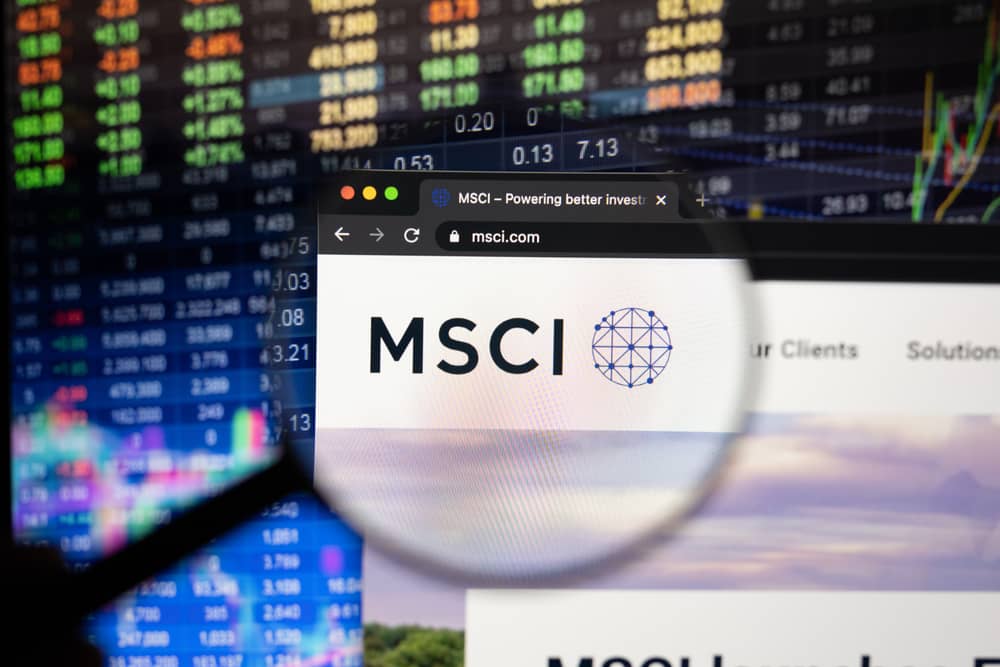The world’s largest index provider, MSCI, has revealed it is closely monitoring geopolitical developments in Ukraine during a period of uncertainty for all asset classes.
As German chancellor Olaf Scholz prepared to travel to Moscow on Monday, MSCI said it was keeping a close eye on access to the Russian equity market, given any invasion by Russian forces would surely be followed by trade and investment sanctions, according to Reuters.
Tensions reached a fever pitch over the weekend as US national security adviser, Jake Sullivan, warned an attack could come “any day now” and US President Joe Biden told Ukrainian president Volodymyr Zelensky the US would respond to any Russian incursion “swiftly and aggressively”.
Starting the week in panic mode, the STOXX Europe 600 index initially fell 2.8% while £34bn and £7.8bn were wiped off the market caps of the FTSE 100 and FTSE 250, respectively.
Elsewhere, Brent Crude hit a seven-year high of $96.2 while European natural gas contracts for next-month delivery surged 12% on Monday, on expectations any military activity and trade sanctions would greatly hamper fossil fuel supply.
Bonds also reacted, with 10-year UK gilt yields shedding almost nine basis points in early trading while equivalent German bund yields fell as much as 11 basis points.
Commenting on the impact geopolitical tensions and last week’s 7.5% US CPI reading have had on investor confidence, Susannah Streeter, senior investment and markets analyst at Hargreaves Lansdown, said: “The twin troubles of a looming conflict and soaring prices are likely to be behind the plunge in investor confidence, in almost all global regions, with confidence falling by 6% on average.
“Investor confidence in the UK has fallen the most, down 11% ahead of the latest reading on inflation this week, which is likely to show another big rise in prices. As consumers brace themselves for more financial pain to hit as household bills shoot up and retailers are forced to pass on higher commodity, transport and labour costs through the price of goods and services, investors are doubly spooked by the prospect of war breaking out in Europe.
“A fresh surge in European gas prices is also expected if conflict does erupt which would intensify the cost-of-living squeeze and this could temper consumer confidence.”
Fears of additional fuel price hikes were stymied on Tuesday, with news Russia was withdrawing some of its 100,000 troops from the Ukrainian border sending oil prices down more than 4% by UK market close.
Likewise, the Stoxx Europe 600 index shot up 1.3% on Tuesday while 10-year UK and German government bond yields both popped to year-to-date highs.
Whether societies should prepare for war or just more political posturing remains to be seen. Germany's Sholz said diplomacy is “not exhausted” but confirmation of cyber-attacks on the websites of Ukraine’s defence ministry, armed forces and state banks Privatbank and Oschadbank on Tuesday evening will do little to foster goodwill.
Related articles





